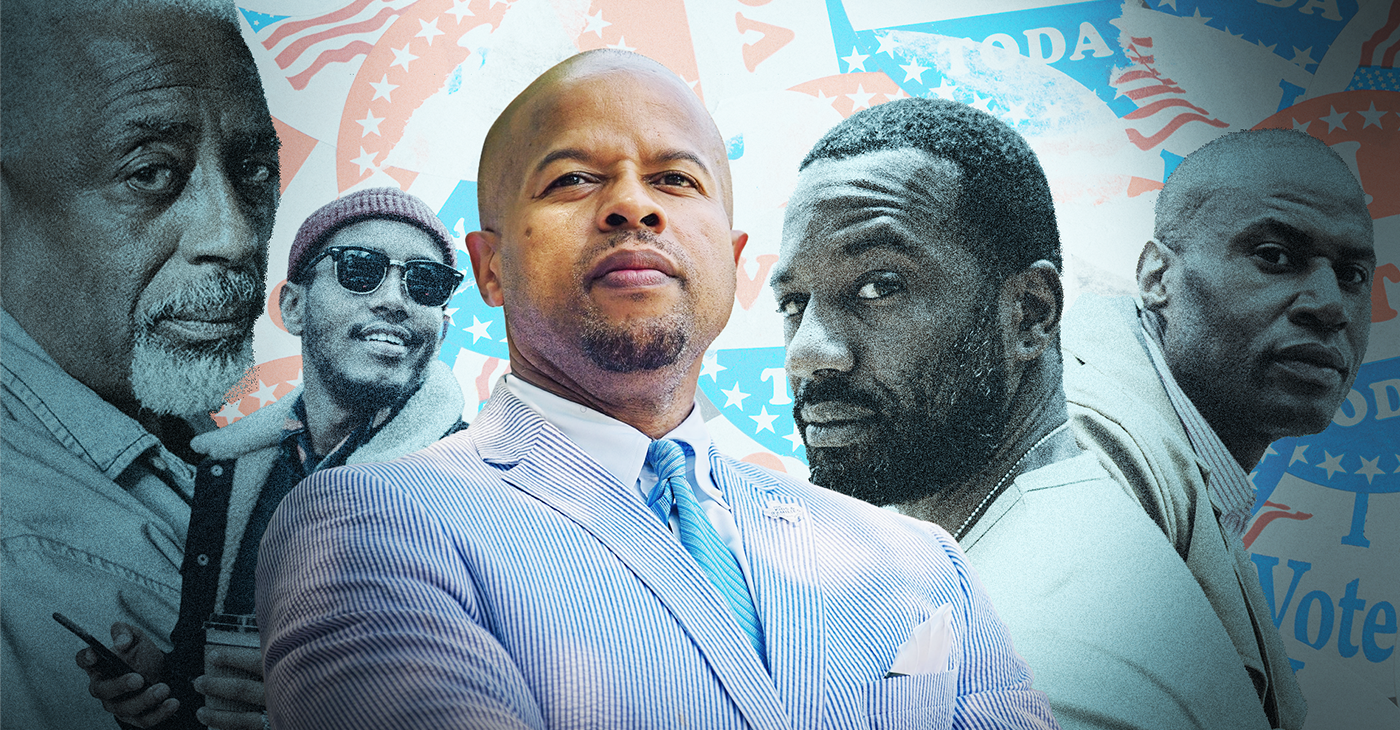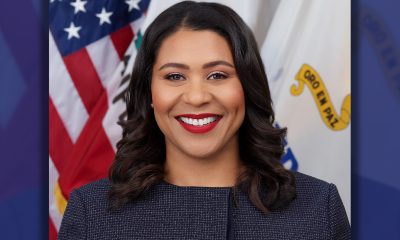#NNPA BlackPress
OP-ED:Embracing Black Men’s Voices
NNPA NEWSWIRE – The decision of many Black men to disengage from the Democratic Party is rooted in a complex interplay of historical disenchantment, unmet promises, and a sense of disillusionment with the political establishment.
The post OP-ED:Embracing Black Men’s Voices first appeared on BlackPressUSA.

By Rep Ron Reynolds
Rebuilding Trust and Unity in the Democratic Party
As a Black man deeply committed to the values of equality, justice, and progress, I find myself reflecting on a concerning trend within our political landscape: the departure of Black men from the Democratic Party. This phenomenon is not merely a statistical anomaly but represents a rupture in the relationship between the party and a significant segment of its base. As we navigate this pivotal moment in history, it is imperative that we explore the underlying causes of this departure and chart a path toward reconciliation and renewal.
The decision of many Black men to disengage from the Democratic Party is rooted in a complex interplay of historical disenchantment, unmet promises, and a sense of disillusionment with the political establishment. For too long, the voices and concerns of Black men have been marginalized and overlooked within the Democratic Party, leaving many feeling unheard and undervalued. As a result, a growing number of Black men have begun to seek alternatives, searching for political homes where their perspectives are acknowledged and their interests are prioritized.
To address this rift and revitalize the Democratic Party’s relationship with Black men, we must embark on a journey of introspection and transformation. This journey begins with acknowledging and confronting our society’s systemic injustices and inequalities. It requires a commitment to dismantling institutional barriers and creating opportunities for economic empowerment, educational advancement, and social mobility for the Black community.
Moreover, it calls for a fundamental shift in how the Democratic Party engages with Black men. We must foster genuine connections and meaningful dialogue instead of token gestures and superficial outreach efforts. We must create spaces where Black men feel valued, respected, and empowered to contribute their insights and experiences to the political process.
Central to this endeavor is recognizing that Black men are not a monolithic group but a diverse and multifaceted community with a wide range of perspectives and priorities. As such, our approach must be intersectional, considering the intersecting identities and experiences that shape the lives of Black men, including race, gender, sexuality, and class.
Furthermore, we must actively work to address the unique challenges and vulnerabilities faced by Black men, including the disproportionate impact of mass incarceration, police violence, economic inequality, and a lack of access to healthcare. By centering the needs and concerns of Black men in our policy agendas and advocacy efforts, we can rebuild trust and unity within the Democratic Party.
In conclusion, the exodus of Black men from the Democratic Party represents a wake-up call for all committed to justice and equality. It is a reminder that political loyalty cannot be taken for granted but must be earned through genuine engagement, meaningful action, and tangible results. As we confront this challenge, let us seize the opportunity to create a more inclusive and just political landscape where every voice is heard, and every individual is valued.
It is time for the Democratic Party to embrace Black men’s voices and reclaim its legacy as a champion of progress and social justice. It starts with prioritizing federal voting rights legislation, including the Freedom to Vote Act and John Lewis Voting Rights Advancement Act, passing the George Floyd Policing Act, and raising the minimum wage to a livable wage.
The path forward may be challenging, but it is also filled with promise and potential. Let us rise to the occasion together and build a brighter future for all.
The post OP-ED:Embracing Black Men’s Voices first appeared on BlackPressUSA.
#NNPA BlackPress
LIVE! — ASK ALMA — TUES. 5.30.23 7PM EST
This week, guest host Leah Farmer King and her panel share tips and advice to reader mail. Leah and the panel, along with the …
The post LIVE! — ASK ALMA — TUES. 5.30.23 7PM EST first appeared on BlackPressUSA.

This week, guest host Leah Farmer King and her panel share tips and advice to reader mail. Leah and the panel, along with the …
The post LIVE! — ASK ALMA — TUES. 5.30.23 7PM EST first appeared on BlackPressUSA.
#NNPA BlackPress
LIVE! — ASK ALMA! — TUES. 1.9.24 7 PM EST
HAPPY NEW YEAR! Welcome back for our first show of the year! This week, Alma and her panel answer viewer mail. As always …
The post LIVE! — ASK ALMA! — TUES. 1.9.24 7 PM EST first appeared on BlackPressUSA.

HAPPY NEW YEAR! Welcome back for our first show of the year! This week, Alma and her panel answer viewer mail. As always …
The post LIVE! — ASK ALMA! — TUES. 1.9.24 7 PM EST first appeared on BlackPressUSA.
#NNPA BlackPress
LIVE! — ASK ALMA! — TUES. 1.30.24 7PM EST
Think you’re the only one with problems? Each week, NNPA advice columnist Alma Gill, along with her panel of guest advisors …
The post LIVE! — ASK ALMA! — TUES. 1.30.24 7PM EST first appeared on BlackPressUSA.

Think you’re the only one with problems? Each week, NNPA advice columnist Alma Gill, along with her panel of guest advisors …
The post LIVE! — ASK ALMA! — TUES. 1.30.24 7PM EST first appeared on BlackPressUSA.
-

 Community3 weeks ago
Community3 weeks agoFinancial Assistance Bill for Descendants of Enslaved Persons to Help Them Purchase, Own, or Maintain a Home
-

 Business3 weeks ago
Business3 weeks agoV.P. Kamala Harris: Americans With Criminal Records Will Soon Be Eligible for SBA Loans
-

 Activism4 weeks ago
Activism4 weeks agoOakland Post: Week of April 10 – 16, 2024
-

 Community3 weeks ago
Community3 weeks agoAG Bonta Says Oakland School Leaders Should Comply with State Laws to Avoid ‘Disparate Harm’ When Closing or Merging Schools
-

 Activism2 weeks ago
Activism2 weeks agoOakland Post: Week of April 24 – 30, 2024
-

 City Government3 days ago
City Government3 days agoCourt Throws Out Law That Allowed Californians to Build Duplexes, Triplexes and RDUs on Their Properties
-

 Community2 weeks ago
Community2 weeks agoRichmond Nonprofit Helps Ex-Felons Get Back on Their Feet
-

 Community2 weeks ago
Community2 weeks agoOakland WNBA Player to be Inducted Into Hall of Fame


















































